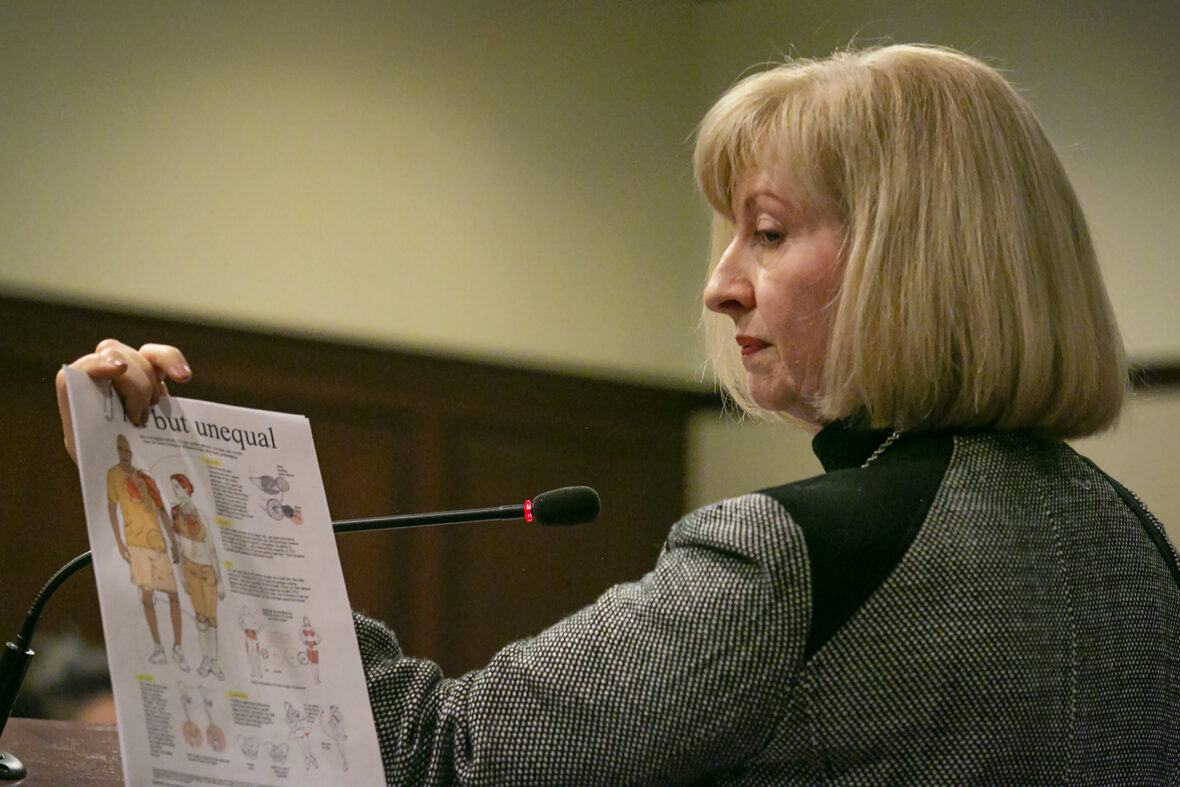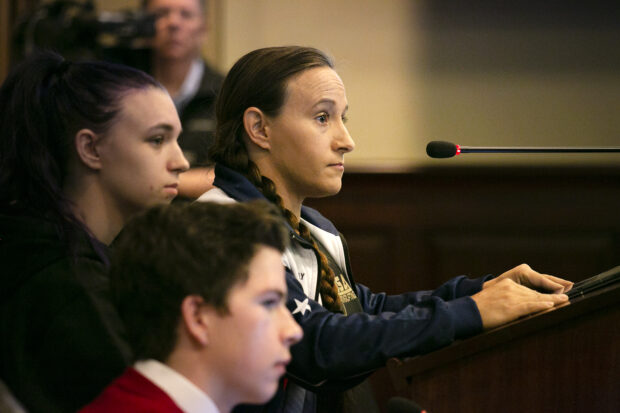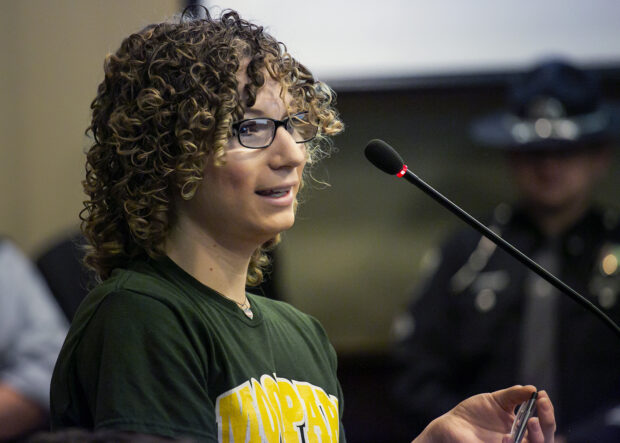
After a two-hour hearing that focused on fairness — and terminology — senators took no action Friday on a controversial transgender athletics bill.
The Senate State Affairs Committee hearing will continue Monday morning, and a vote could follow.
Dubbed the Fairness In Women’s Sports Act by its sponsors, House Bill 500 would ban transgender girls and women from competing in girls’ and women’s sports. Sponsors said HB 500 would allow girls and women to continue to compete in school sports.
“Women fought long and hard for fairness in sports,” said Sen. Mary Souza, R-Coeur d’Alene. “Now we’re in a new crisis.”
But the mechanics of HB 500 emerged as a central theme Friday. Decrying what she called “misrepresentations” about her bill, Rep. Barbara Ehardt pushed back against critics, who say the bill would subject student athletes to invasive physical exams designed to determine their gender.
Ehardt, R-Idaho Falls, said gender can be determined through urine, blood or saliva samples. A physical examination, she said, represents “options that will probably seldom be used. … maybe never.”
According to the appeals process, as outlined in the bill, an athlete’s gender “shall” be determined through three steps. That list of three steps includes an examination of “the student’s internal and external reproductive anatomy.” Citing a recent attorney general’s opinion, Sen. Michelle Stennett drilled down on this section of the bill.
“Words matter,” said Stennett, D-Ketchum.
Later in the hearing, Souza said the wording had been vetted by a number of legal teams from across the nation. “Almost no one would have to go through any special exam,” she said.

One of the most controversial bills of the 2020 legislative session, HB 500 has sparked student protests and a Statehouse rally Tuesday evening. Senate State Affairs’ hearing room was filled to capacity Friday morning, with an overflow crowd listening to a stream of the hearing in an adjacent meeting room.
Nineteen speakers testified on the bill Friday: seven in favor, 12 opposed.
“It’s cultural genocide,” said Emilie Jackson-Edney, a transgender activist, who called HB 500 an attempt “to scratch an ideological itch.”
Several present and former athletes urged lawmakers to support HB 500.
“Passing HB 500 is the ethical choice for protecting our future generations of girls,” said Robin Ray, an international champion women’s powerlifter.
Lori Woodland of Rexburg — a former women’s basketball coach at Ricks College, now Brigham Young University-Idaho — discussed the disparity in physical strength between the sexes.
“Girls and women are going to be injured physically,” she said.

But Lindsay Hecox — a transgender woman now attending Boise State University — called HB 500 “blatantly transphobic.” Hecox said she would not have wanted to have to compete against boys or change in a boys’ locker room, where she would be vulnerable to bullying or assault.
Standing up for transgender rights, she said, should not be a matter of partisanship. ”All you need is an open mind and a compassionate heart.”
So far, the debate over HB 500 has fallen largely along partisan lines.
HB 500 passed the House State Affairs Committee along party lines on Feb. 20. Six days later, on the House floor, HB 500 passed, with only three of the House’s 56 Republicans joining Democrats in opposition.
That House vote set up the hearings before Senate State Affairs — a nine-member committee made up largely of Senate leaders. Seven of the committee’s nine members are Republican.
CTE instructors
In other action Friday, the House Education Committee advanced a bill designed to help with the recruitment and retention of career-technical educators.
Pushed by Sen. Dave Lent, R-Idaho Falls, Senate Bill 1329 would make three key changes:
- It would recognize CTE instructors’ experience in industry by identifying a ratio for placement on the career ladder salary allocation system.
- It specifies that the existing allocation for CTE staff holding an occupational specialist certificate be directed to instructional staff rather than being placed in the district’s general fund.
- And it identifies a new, streamlined path to follow toward occupational certification.
Representatives from Idaho Business for Education, the Idaho Division of Career-Technical Education, the Idaho Association of Commerce and Industry and others testified in support of the bill.
Kurt Liebich, a member of the State Board of Education and the vice president of IBE, said passing the bill supports CTE programs that benefit students by making it easier to attract quality instructors with industry experience.
“I think we need to be laser focused on CTE,” Liebich said.
House Education advanced the bill via a voice vote.
Senate Bill 1329 heads next to the House floor with a recommendation it passes. It previously passed the Senate unanimously on Feb. 24.
Idaho Education News reporter Clark Corbin contributed to this article.



